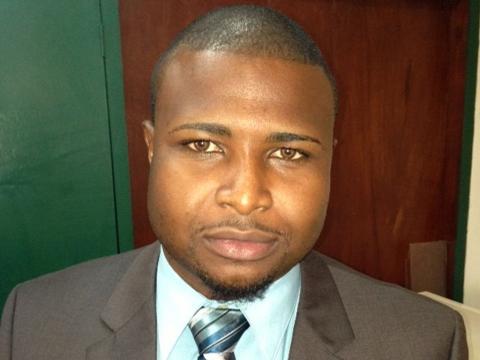“…before the end of this presidential term, chiefdom headquarter towns will also have pipe-borne water” – Momodu Maligie Following the release yesterday of a report by an international NGO, Water Aid, on access to water and sanitation in five African countries, Politico caught up with the new Minister of Water Resources, Momodu Maligie and started by asking him about the current water situation in the country. Momodu Maligie: Well the water sector is very challenging in Sierra Leone. For example in the case of Freetown we have a dam that was built for a maximum of 500,000 people and the mass urbanization, especially unplanned urbanization, has put a great problem on the supply network of Guma Valley – the Freetown Water Project. However the government has made several strides in alleviating the situation mostly in the provinces. So with the creation of a new ministry we have a very big and challenging mandate and we are looking to engage funds from private sector. There is a great donor appetite from our development partners and we are implementing those projects on a timely basis while trying to ensure that we put the right structures for the utility companies to be more efficient, more effective, and to operate in a sustainable manner as a business. As a private entity. As such not necessarily dependent on government funds which though available are very tight because we are several problems to deal with and very limited resources. Politico: So are you implying that water supply should be privatised? Momodu Maligie: I’m not saying it should be privatised. I’m saying that the sector, the utility companies should operate with that mentality which means that people should pay for water. But at this current state we can’t really tell people “pay for water right now” because we have to deliver the water in a sustainable way, in a way that they also have the confidence that “Yes this is ours as a nation. We have own up to it and we have to ensure that we play our part as a people to ensure that it continues”. Politico: Now when you say that government is making strides in the provinces to make water available there, one doesn’t get that feeling when you go to the provinces. There is hardly piped water in the provinces apart from a few towns. Momodu Maligie: Well as you know to set up the infrastructure for water is not a day or even a week’s job. It takes time. It is a year-plus-long project. Currently there is a Freetown water project supported by the African Development Bank and our government which would give pipe-borne water to Kenema, Bo and Makeni. There is a project for water supply in Pujehun, in Kabala, in Kono coming up. In Bonthe as well. This will bring water, pipe-borne water, to those places. And I assure you that government plans to ensure that by the end of this term, this presidential term, there will also be water in every chiefdom headquarter town which is 149. Politico: In terms of people having access to something which at present is put around 60% in Freetown even if that includes street taps, one of the challenges cited by the Guma Valley Water Company is that there is not much funding and that they need money. Government has made a commitment to give a certain percentage of its GDP towards that. Is there a guarantee that by 2015 there will be access to drinking water for most Sierra Leoneans? Momodu Maligie: Most certainly! And I say that with much confidence and it is coming from my humble self that His Excellency the President has made water a very top priority in the Agenda for Prosperity. As you know the President inherited a country with several problems and I think his target or his legacy will be the leader that transformed this country. And you can’t really transform Sierra Leone if you don’t sort out the water problem. It is a very key sector. And yes there has been an increase in government funding – the most since 1961, I should say, with government taking the lead to fund projects not just in Freetown but in the provinces as well. And this has encouraged an increase in donor appetite because that’s the attitude of donors. You as a nation should own up, you should take the ownership to take lead which is what this government has done. And as a result we have seen an increase in donor support to play their part to ensure we expand the water network. Politico: Finally are you pleased with the way things stand at the moment in terms of access to drinking water in the country? Momodu Maligie: I can’t be pleased because our people need water and the demand is so high while supply is low. That’s the challenge. What I’m pleased about is the commitment of this government. What I’m pleased about is the attitude of the managers in the sector. They are also ready. They are also committed to it. I’m also pleased with the potential that I see. I’m not pleased currently in the supply because it is not there yet, but I’m pleased which is why I can assure that by 2015, at the latest, Freetown and the provincial headquarter towns will have pipe-borne water. And before the end of this presidential term I’m most confident that the chiefdom headquarter towns will also have pipe-borne water. Politico: Thank you very much Momodu Maligie: Thank you so much
 Interview: Water resources minister assures of piped water by 2015
Interview: Water resources minister assures of piped water by 2015
Category:








